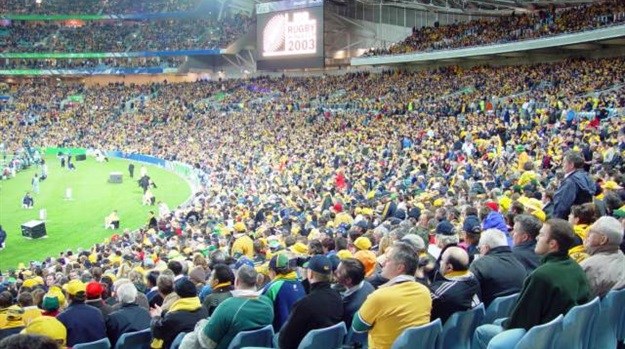Sports sponsorship is big business. For companies selling fashion, alcohol, financial products, utilities..in fact almost anything, a sports sponsorship deal can be an excellent investment and a brilliant way to reach more customers.
Sports sponsorship is a broad advertising category with many 'products' for sponsors to choose from. There's team sponsorship (think O2 and the England Rugby Union Team), venue sponsorship (e.g. Walker's Stadium for Leicester City) and event sponsorship (for instance, Barclay's Premier League). Of course, sponsors can also plough their money into exceptionally high profile individuals like Jessica Ennis-Hill, who is sponsored by Adidas and has highly lucrative deals with Aviva, BP and Santander UK, amongst other big names. Then there's the sponsorship of sports-related media content, for example, every England match broadcast on ITV at present is sponsored by Screwfix.
Primary objectives
Different types of sponsorship deliver different benefits. For some brands, sports sponsorship is an opportunity to reach new demographics or to reassert themselves as a quality household name. For others, it's about basking in the glory of a sports team or individual perceived as having particular qualities, whether these are dedication, honour, strength or patriotism. Ultimately, a sponsor's primary objective is increased revenue and profit.
Occasionally, a sponsor, an athlete and a key sporting moment create a perfect storm and there are wide-reaching financial repercussions. In the 2003 Rugby World Cup final, in the very last minute of extra time against Australia, 24-year-old Johnny Wilkinson scored a winning drop goal. It was a fantastic moment for English rugby fans, and an incredible moment for Johnny himself, but for the sponsors it couldn't have been better.
During the course of the thrilling tournament shares in Diageo, owners of Guinness - the official sponsor of the event, rose by an astronomical 9.8%. But the impact of the rugby victory didn't stop there; the pound rose 700 points against the dollar.
Cathy Freeman, the Australian 400-metre sprinter had her amazing moment at the Sydney Olympics in 2000. Her teammates were already riding a wave of success, giving their best Olympic performance ever, and eventually taking home 16 gold, 25 silver and 17 bronze medals. Freeman, the second ever Aboriginal Olympic champion, won her race in just 49.11 seconds. Nike, the name emblazoned across Freeman's body suit, saw its shares increase by 7.5% in the days following her Olympic victory. Even more impressively, on the very same day Freeman sprinted to glory, the Australian dollar leapt a substantial 68 points against its US counterpart.
So how did the sporting prowess of individuals like Freeman and Wilkinson come to have a major effect on Forex markets and give their respective countries' currencies such a boost? Essentially, it's about very high morale on a massive scale. The feel good factor amongst those nations spreads and investors, sensing and responding to this, pour money into the countries (and currencies) that represent success.
Right now, with the Rugby World Cup underway, and sports fans across the globe avidly watching their heroes compete, sponsors and governments alike will be hoping for a few more epic moments to shake up the financial and commercial markets alike.











































